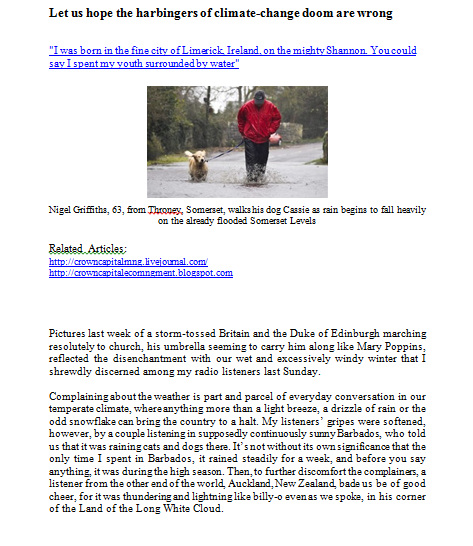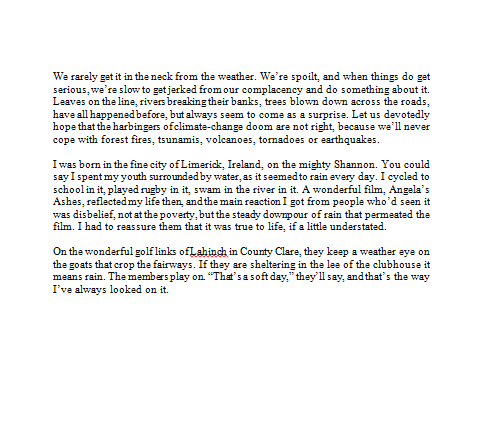
 This Simple Strategy Will Make You the Top Candidate for Any Job
This Simple Strategy Will Make You the Top Candidate for Any Job
Most job searchers believe that a few key adjustments to a one-page resume, submitted to the best job board and optimized to catch eyes is all it takes. Hit send and hope for the best. Employers too buy into the promise of shortcuts and immediate results. As if it’s quick and simple to find the next man up when someone goes down. As if the employment landscape is a plug-and-play world of new faces claimed on an as-needed basis.
It’s maddening, short-sighted and ironically, it could be a cause of the job crisis in this country. While there are some 10.2 million unemployed in the US, there are also some 4 million open jobs in our country. What we have is a lack of thoughtful pursuit of both quality employees and desirable career opportunities. Because in the torrent of tips and tricks, job seekers rarely get substantive advice on how to connect, engage and relate to an industry or career, let alone build the kind of personal brand that brings employers knocking.
Closing the employment gap requires a radical reimagining of how to navigate the job market. Many employers are less interested in the employment history you’ve polished up on your resume and more eager to see what you can do for them today. Job seekers must work hard to prove that they can offer true value for their industry, their community and their future employer by developing content that’s informative, enlightening, even entertaining. By doing so, they show firsthand the talents and abilities they could bring to the job rather than simply telling employers about them through a resume.
The path forward will be paved by the kind of disruptive change that we’ve seen in the entertainment industry over the past few years, as movies and broadcast TV have been threatened by upstart Netflix.
Once the mail-order version of Blockbuster (without the late fees or the annoying burden of returning a DVD the day after viewing), Netflix today represents 31.6 percent of downstream U.S. Internet traffic. And it’s solidifying viewer loyalty by doing the difficult task of creating its own content. Free from the expectations of the industry, Netflix is producing its own Emmy-award winning program, House of Cards, and the highly popular Orange is the New Black. And they are serving it up in an all-you-can-eat, binge-watching fashion that audiences love to coagulate around during a rainy Saturday or a day off from work.
Netflix’s efforts will forever be linked to the moment in time when viewers shifted their habits toward streaming video content and away from traditional outlets. But more importantly, the company’s knockout TV shows add a new, enticing dimension to its brand while proving to viewers that it’s as creative and artful as the best in the business. It committed time and energy to the work of developing great stories. This is the kind of effort that draws viewers in droves, and one Netflix’s competitors are now scrambling to duplicate.
The job market is primed for a similar disruption, and to some extent, it’s already begun. Candidates are advancing their career opportunities by doing the hard work of creating standout content and singular brands that truly capture attention, loyalty and opportunity. And that’s the secret to getting that dream job: Be like Netflix and create content tailored to your audience to prove you’re the ideal candidate.
That’s exactly what comedian Jack Moore did. Aspiring to be a sitcom and screenplay writer, he demonstrated his talent through the popular Modern Seinfeld Twitter feed, which offers storylines for what George, Jerry, Elaine and Kramer would be up to in today’s world. His months of artful execution have led him to his dream job as a screenwriter.
He shattered the confines of the old resume-centric world of job searching by taking the focus off of himself -- the heart of any resume -- and homing in on his audience. Instead of talking about his skills, he used them. He buckled down and proved he could do the job without being asked and made sure potential future employers would take notice. His efforts parallel those of Netflix, which continues to produce its creative best to box out traditional channels and win wider audiences.
The kind of disruption and success Netflix has achieved -- and the kind the job market sorely needs -- isn’t easy and can’t be neatly summarized in a tip or trick. Because it’s no trick. It’s the sum total of thought, effort and dedication. It’s a new ideology guiding the way job seekers think about their careers and transforming the way employers search for talent.

 Backpacker Visa Guide to Southeast Asia
Backpacker Visa Guide to Southeast Asia
As a backpacker in Southeast Asia crossing borders becomes a regular undertaking. Each country has a different rule of entry and some countries will require you to apply for a visa before you travel. As visa requirements often change, for travellers in South East Asia it can be difficult to plan things like budget and duration of travel. Here, we’ve done our best to compile the latest visa information in South East Asia to make it easier for you toplan your trip! Please be aware that information regarding visas is particularly vulnerable to change and make sure you check. if you have new knowledge of a change in border crossing information! If you have new information, blog it here.
Westhill Consulting Career & Employment out of Australia has useful blogs for up-to-date information as well as many other sites.
Brunei Darussalam:
Nationals of most European countries (this includes 25 countries in the European Union), Malaysia, Singapore, South Korea andNew Zealanddo not need to apply for a Tourist Visa for visits of up to 30 days.
USA citizens can stay for up to 90 days.
Citizens of Indonesia, Thailand, Canada, Japan, Switzerland and Norway will receive a 14 day entry.
Other nationalities need to apply for a visa in advance which takes 1-3 days to process. For single entry, the visa costs B$20 or multiple entry B$30. If you require a multiple entry visa for a period longer than three days the cost will be B$50.
72 hour transit visas are also available for most nationalities provided that the traveller can show a ticket for an onward destination.
Passports must be valid for up to 6 months before entering and the embassy recommends that you travel with at least two unused pages in your passport.
Visa Renewal: Visas can be renewed at embassies in Bandar Seri Bagawan.
See Brunei Darussalam offical government website for further information and contact details.
Cambodia:
Most nationalities can obtain a one month tourist Visa upon arrival which costs around $20.
At land border crossings, notably the Thai/Cambodian border, the fee can be more expensive as the cost is paid in Thai baht and is sometimes rounded up considerably (currently 1200 baht).
You will need two passport photos to apply, or you will be charged extra (usually only $1-2).
Passports must be valid for up to 6 months before entering.
You can also now apply for an E-visa online at the Cambodian Ministry of Foreign Affairs & International Cooperation.
Here, you can pre-order your visa for a set price of $25 set price ($20 visa and $5 processing charge). You will need a digital photo of yourself to upload. Processing takes three days and you will get the visa straight to your mailbox.
See official website for up to date info on which borders support the E-visa as not all of the crossings take it yet.
Visa extension:Visa extensions can be obtained at Phnom Penh immigration office – opposite the International Airport. Tourist visas can be extended one month (around US$35). Some guest houses and travel agencies will also offer the service for a fee. For longer extensions ask for details at the Immigration Office.
See Cambodian Ministry of Foreign Affairs & International Cooperation for further information and contact details.
East Timor:
Nationals from most European countries, Australia, Canada and the USA do not need to arrange a visa in advance.
Visas must be applied for in advance, as they are no longer granted on the land border.
Passports must be valid for up to 6 months before entering.
It is important to note that there are no currency exchange facilities at the airport or other border posts, so you will need to take cash before you travel.
Visa extension:Visas can be extended for 30 days, costing up to $45. You must have a valid reason for staying.
Penalty for late departure:Penalties range from $70 – $150 US Dollars if the period does not exceed 30 days.
Indonesia:
For visa extentions, go to the Jakarta Indonesia immigration office.
Nationals of Australia, Canada, USA, UK and most European countries are eligible for a 30 day visa upon entry, which costs around $25 USD (cost varies depending on point of entry). Payments can be made in US Dollars only.
Please note – the previous $10, 7-day visa is no longer available.
You will need 2 passport photographs and your passport must be valid for up to 6 months before entering.
Penalty for late departure:Up to $20 / day. For more than 60 days overstay travellers risk deportation or imprisonment.
Laos:
Most nationalities can obtain a 30 day visa for Laos at international airports and land border crossings.
The cost ranges from $20 – $42, depending on your nationality.
At the Thailand/Laos border (Nong Khai – Vientiane) if you pay in Thai baht fees can be more expensive.
You will need 2 passport photos and your passport must be valid for at least 6 months upon entering.
Visa extension:Visa extensions can be applied for at the Vientiane Immigration Office, which costs US$2 / day for 30 days. Extensions can also be obtained from some travel agents for around US$3. 90 day extensions are available, ask at the embassy for details. Warning, do not use “fixers” for visa extentions as it is usually a scam.
Penalty for late departure:Up to US$10/day. Long overstays can lead to arrest and imprisonment.
Malaysia:
Most nationalities are granted a free 30-90 day Visa upon arrival at international airports and border crossings.
The cost ranges from $20-42, depending on your nationality.
Passports must be valid for at least 6 months upon entering.
Please note that Sarawak is a semi-autonomous state and upon entry your passport will be stamped and a new pass issued.
Visa extension:Visas can be extended at Immigration offices in Malaysia. Fees depend on intended duration of stay.
Myanmar:
Visa free entry is available at some border crossings for a short period. If you are going for the day to renew your Thailand Visa for example, you must enter and exit on the same day. Fees are around US$10 (depending on security situation, overland border crossings are frequently closed. Be sure to check the security situation before you travel).
Longer visas should be arranged in advance at a travel agency or Myanmar Embassy. In Bangkok, at the Myanmar Embassy the cost is 810 Thai baht for a 28 day visa, taking three days to process. It is possible to pay extra (around 300 baht) to fast track the process to one day.
Like the Vietnam visa, the cost depends on where you are and how long you mind waiting. It can range from $20 – $50. Your passport must be valid for at least 6 months and you will need two passport photos.
Visa extension:It is possible to extend your visa for up to 14 days in Yangon. Ask at embassy for details of costs.
Singapore:
Citizens of Australia, New Zealand, Canada, South Africa, the UK and most other European countries are granted either a 14 or 30-day tourist pass upon entry to Singapore.
Duration of pass depends on nationality and point of entry. USA citizens receive 90 days. Your passport must be valid for at least 6 months upon entering and you may need an onward ticket.
Visa extension:Extensions of up to 90 days can be applied for at the consulate in Singapore.
Thailand:
Most nationalities, including Americans, Australians and most Europeans receive a free 30 day tourist visa upon arrival into Thailand by air. However, if arriving by land you will only receive 15 days.
Your passport must be valid for at least 6 months upon entering.
Penalty for late departure:500 baht/day. The maximum fine for overstay that you can pay is 20,000 baht after this you may face deportation at your own cost or imprisonment.
Visa extension:Visas can be renewed for a fee at immigration points. The cost is 1900 baht for 7 days extra and it can be extended only once. If you leave the country and return, your visa will be renewed for free. You can exit and re-enter the country as many times as you like this way and most travel agents can arrange border runs to neighbouring countries.
Vietnam:
Visas for entering Vietnam must be arranged in advance. You can do this at the Vietnamese embassies in whichever country you are in and some travel agencies also offer the service. Visas can also be obtained in advance viaVietnam Airlines online.
The service will email you a letter of approval before you travel which you must show to the airline before you board the plane. When you arrive at the airport then you must show the letter, pay a fee of $10 USD and receive your visa. You will not be allowed to board the flight if you do not show either a visa approval letter / or a valid visa.
Depending on where you apply for it and how long you mind waiting, (on average from 1 day to 4 days), the Vietnam visa can cost anywhere between $35 and $65 for a 30 day visa. You will need one passport sized photograph and your passport must be valid for at least 6 months upon entering.
You can also apply for 90 day visas, which have been issued for more than a year, costing US $100.00.
If you apply via Vietnam Airlines, the initial application for a single entry visa will cost $18, then a further $25 “stamping fee” will be charged on arrival in the airport, when you collect the visa. The $18 gets you a letter of approval, which must be printed out and taken to show the Airlines when boarding the plane. The letter, along with two passport photos and $25 in cash, must then be given to the Immigration Office upon arrival in return for your visa.
In a bid to encourage tourism – at certain times there are visa fee exemptions. See the Vietnam Tourism website for further information.
Visa extension: 30 day extensions can be obtained from travel agents in Hanoi, HCMC or Danang. The process can take up to 5 days and the fee is usually US$30.
For more information:
Backpacker Visa Guide
Backpacker Visa Guide

 Sec, DOJ Bring Charges Based on Biofuels Scam
Sec, DOJ Bring Charges Based on Biofuels Scam
 http://kartme.com/notes/sec-doj-bring-charges-based-biofuels-scam
http://kartme.com/notes/sec-doj-bring-charges-based-biofuels-scam
The SEC and the DOJ filed actions against six individuals and three companies centered on a fraudulent biofuels scheme. Customers of the company lost about $55 million; the Internal Revenue Service is exposed to as much as $35 million in false claims; and shareholders of the company, who once had a high flying stock, were left with a bankrupt company. SEC v. Imperial Petroleum, Inc., Civil Action No. 1:13-cv-01489 (S.D. Ind. Filed September 18, 2013).
The scheme centered around incentives and credits available under the Energy Independence and Security Act of 2007. The Act contained incentives for the production of biodiesel. One was a $1 dollar per gallon credit to the first person to blend pure biodiesel, called B100, with petroleum diesel after which it was known as B99. A second came from a renewable identification number or RIN. Biodiesel producers generate and attach those credits to the fuel they sell. Since certain companies need RINs to comply with regulatory obligations they have value. The credits were only available once. Thus a gallon of B100 with a RIN attached was worth as much as $2.50 per gallon more than an equivalent gallon of B99 without the credits.
Imperial Petroleum, Inc, whose chairman was Jeffrey Wilson, both defendants, acquired E-biofuels, LLC or Ebio on May 24, 2010 from the original owners of the company. The consideration was notes totaling $3.75 million plus two million shares of Imperial stock. The original owners included defendants Craig Ducey, Chad Ducey and Brian Carmichael. At the time Imperial and its CEO believed they were purchasing a profitable biodiesel firm.
Ebio’s involvement in the biodiesel business trace to 2006. At that point the company made efforts to produce biodiesel fuel. It had limited success.
Three years later Defendants Joseph Furando and Evelyn Patterson, along with one or more of their companies, which include defendants Caravan Trading, LLC, CIMA Green, LLC and CIMA Energy Group, brokered the sale of biodiesel to Ebio. The company began purchasing B99 without RINs.
Early in 2010 Craig and Chad Ducey, along with Joseph Furando, worked out an arrangement to secure a supply of B99 to recertify. Working with the three entities controlled by Mr. Furando and Ms. Pattirson, an arranged was entered into under which Ebio would purchase a supply of B99 without RINs at inflated prices. The sellers would furnished false invoices describing the transaction as the sale of feedstock which is the raw product used to create the fuel. By the time Imperial acquired Ebio, the company had already purchased more than 1 million gallons of RINless B99 for recertification.
Within weeks of Ebio’s acquisition by Imperial, Mr. Wilson discovered the fraud. He did not halt it. Rather, it continued. Revenue spiked from about $1 million to $110 million from the illegal business. The financial results were reported in filings made with the Commission.
By late 2011 rumors circulated in the industry that Ebio was a fraud. In early 2012 its business was all but gone. By April 2012 the company collapsed into bankruptcy. The Commission’s complaint alleges violations of Securities Act Section 17(a) and Exchange Act Sections 10(b), 13(a), 13(b)(2)(A), 13(b)(5) and 20(a).
The criminal cases allege 88 counts which include conspiracy, wire fraud, false tax claims, false statements under the Clean Air Act, obstruction of justice, money laundering and securities fraud. The cases are pending.
Read more:
http://network.nature.com/groups/izabellenswan/forum/topics

 Crown Capital Management Environmental Reviews - Lack of Political Leadership on Environment
Crown Capital Management Environmental Reviews - Lack of Political Leadership on Environment
Seven major charities have released a report accusing Britain’s three main political parties of a ‘lack of political leadership’ when it comes to environmental issues.
The ‘Green Standard 2013’ report was co-authored by WWF, RSPB, Greenpeace, the Wildlife Trusts, and Friends of the Earth, Green Alliance, and the Campaign for Better Transport. The charities assessed the Conservative, Labour and Liberal Democrat parties on four criteria: the economy, communities, nature and international leadership.
Whilst the report acknowledges that individual politicians have made ‘key’ contributions to environmental issues, it admonishes the party leaderships for failing to develop a coherent environmental policy or to put green issues at the heart of their campaigning.
Key areas for leadership
Four main areas are identified in the report where, its authors argue, leadership must be shown and improvements can be made:
Economy: the UK must invest more in renewable energy and resource recovery infrastructure, as this would give ‘certainty’ about the country’s green commitments and benefit the economy;
Communities: communities must be helped to be ‘more resilient to rising energy, fuel and food costs and increase social equity in existing towns and cities’;
Nature: the natural environment must be protected through a ‘bold and ambitious action to support its recovery’, as ‘far more species are declining than are increasing’; and
International leadership: offering ‘real international leadership on environmental issues’ could be a prime opportunity to improve the parties’ track records.
Conservatives
The report praises the Conservative Party’s role in the early days of the coalition government, when David Cameron pledged to make his the ‘greenest government ever’.
However, it notes that his commitment has been undermined, both by Chancellor George Osborne’s ‘framing of high environmental standards as a threat to economic success’ and by the government’s deregulation agenda, which it says ‘risks turning back the clock on the protection of nature’.
It also criticises Cameron for failing to address ‘growing scepticism about human-induced climate change within his party’. Although it notes that he gave a speech in 2010 where he declared that he “cares passionately” about the environmental agenda, it points out that he ‘appears reluctant to defend his own commendable decision to set the fourth carbon budgets’.
The report does, however, praise Conservative ministers such as William Hague, Caroline Spelman, Richard Benyon and Greg Barker for advocating for such causes as biodiversity, endangered species and international development on the international stage.
Labour
The Labour Party receives some praise in the report for its environmental efforts whilst in government, which included creating the Department of Energy and Climate Change (DECC).
Ed Miliband and Ed Balls are also commended for their ‘strong support for a greener economy’, as are Caroline Flint, Maria Eagle, Hilary Benn and Mary Creagh, for ‘[holding] the government to account for its performance on electricity market reform, the proposed sale of public forests, planning reforms and cuts to public transport’.
However, the party is criticised for ‘treat[ing] environmental sustainability as a bolt-on to its main economic and social objectives’, meaning it has given ‘few specific proposals to green the UK economy’.
This, the report argues, has led to a failure of the party to develop a coherent environmental policy or to place environmental issues at the heart of its ‘emerging One Nation narrative’.
Liberal Democrats
Nick Clegg’s party are lauded for winning ‘some significant battles on climate change’ whilst in the coalition government. These include negotiating for the Green Investment Bank and ‘securing funding for a low carbon energy supply and green transport’.
Ed Davey and Chris Huhne, Davey’s predecessor as Secretary of State for Energy and Climate Change, are both praised for providing ‘strong leadership on climate change nationally and internationally’, as is Norman Baker for his ‘commitment to sustainable transport and alternatives to car travel’.
Yet the Liberal Democrats, like the other two major parties, do not escape criticism from the report. It points out that Liberal Democrat MPs were whipped to vote against adding a decarbonisation target to the Energy Bill, despite such a vote going against party policy. It also chastises the party for providing ‘no clarity on the party’s position on European targets for renewable energy and energy efficiency’ and ‘no leadership on the natural environment agenda, and worrying support for policies that damage wildlife’.
Ultimately, it says, ‘Liberal Democrats have not found a strong voice on the natural environment or demonstrated an impact from within Defra.’
Government has ‘lost its momentum as a reforming, greener government’
Speaking of the report, Matthew Spencer, Director of Green Alliance, said: “In private the three main party leaders may speak eloquently about the importance of the environment, but they have rarely made the case publicly since the election. As a result the quality of the political debate on the issues has declined markedly, and the coalition has seriously lost its momentum as a reforming, greener government.”
Andy Atkins, Executive Director of Friends of the Earth, added: “The overwhelming response of people in Britain to the dramatic decline in our bees is a vivid illustration of how highly we value the environment and yet there is a deeply troubling trend among our political elite to disregard our views and favour vested interests. Nothing exposes this more clearly than the appetite of our politicians to start fracking, which is demonstrably against the will and interests of ordinary people who time-and-again say they want locally-owned renewable power.”
David Nussbaum, Chief Executive of WWF UK, echoed these sentiments, saying: “The green economy has… bucked the trend of the recession and is the UK’s strongest growth sector. But these areas all need support, and mainstream politicians from each of the parties have failed to show visible and consistent leadership on the environment.
“Given that our leaders recognise that we’re in a global race to develop environmentally sustainable economies, it’s in their interest to show environmental leadership.”
RELATED SITES
http://blog.crowncapitalmngt.com/

 Environmental watchdog worries Canada set to become pollution haven
Environmental watchdog worries Canada set to become pollution haven
A group of students celebrate Earth Day in the Philippines. AP Photo/Pat Roque.
A British Columbia group has told an international panel reviewing the environmental effects of NAFTA that the worst fears about the historic trade agreement’s impact on the environment have come true, especially under the federal Conservative government.
West Coast Environmental Law has sent a submission to the Commission on Environmental Co-operation as part of the commission’s look back at the 20 years since a side deal was signed between Canada, the United States and Mexico in response to concerns that NAFTA’s environmental impact.
The commission has formed a public advisory panel asking for public input, noting in a news release the side deal was reached amid concerns that NAFTA might “harm the environment by encouraging the creation of pollution havens because of lax environmental standards or ineffective environmental law enforcement.”
“With new free trade agreements, such as the Trans-Pacific Partnership, in negotiation all around the globe, there is no better time to reflect on the ideas that led to the creation of the (commission) in 1994, considered by many as the first time international trading partners addressed concerns that free trade might harm the environment,” the commission’s news release said.
But West Coast Environmental Law argues that’s exactly what has happened.
In a submission filed Wednesday, the group argues the federal Conservatives violated the agreement by introducing changes in two omnibus pieces of legislation.
Specifically, the group points to changes to the Fisheries Act, which it says will inhibit the protection of fish habitat, and changes to the way Canada conducts environmental assessments.
The group says those changes will mean there will be thousands fewer assessments, including on projects the groups says could have major environmental impacts, such as oil and gas pipelines.
“These changes weaken environmental protection and public involvement, despite Canada’s commitment. . . to the appropriate assessment of environmental impacts,” West Coast Environmental Law’s lawyer, Andrew Gage, writes in the submission.
The group also takes the NAFTA side agreement — known as the North American Agreement on Environmental Co-operation — to task for being toothless.
Gage writes that there has been no response to Canada’s legislative moves.
“While the commitment to enforce environmental laws is indeed a crucial piece of the (North American Agreement on Environmental Co-operation), the agreement does not contain any remedy for members of the public when a government violates the many other commitments found in it,” the letter says.
“Instead, the Canadian government has ignored these provisions with apparent impunity.”
West Coast’s letter to the commission comes a day after environmental activists launched a lawsuit in the Federal Court of Canada challenging new federal legislation they say limits their ability to oppose pipeline projects at regulatory hearings.
The lawsuit, which will be mounted by noted Toronto lawyer Clayton Ruby, was filed by ForestEthics Advocacy and activist Donna Sinclair.
The legal challenge argues provisions of the National Energy Board Act be struck down. The act was among the omnibus budget bills that Gage’s group refers to in its commission submission.
Ruby has said he plans to argue the limits on opposition to pipeline projects violates charter freedoms.
Gage said in an interview Thursday the back-to-back challenges of Harper government policies were happenstance, not part of a co-ordinated effort to have the measures struck down.
And he acknowledged it’s unlikely the commission will be able to pull Canada into line with the commitments outlined in the NAFTA side agreement.
But he said a rebuke from the commission would carry “moral weight.”
Gage noted that although the changes included in Bills C-38 and C-45 — which he says “gutted” environmental protections in Canada — have been passed in Parliament, some of the provisions that environmentalists find most egregious have not been enacted.
“We think that’s to some degree because of the public pressure that they’ve received, not just from environmental groups but from a wide range of constituencies.”
Among the questions the commission is asking in its public review process are:
· What are the environmental successes of NAFTA and where have those agreements fallen short?
· Is the commission meeting its mandate and is its mandate adequate in light of ongoing environmental challenges in North America?
· How could the environmental provisions of NAFTA be improved?
RELATED ARTICLE:
http://crowncapitalecomngment.blogspot.com/

 Asia Global Energy Solutions Morning Energy: BP bites back
Asia Global Energy Solutions Morning Energy: BP bites back
ILLNESSS OF FORMER EPA OFFICAL CHARGED WITH THEFT POSTPONES
HEARING: An arraignment scheduled for today in the case of an EPA employee who
stole nearly $900,000 from EPA over more than a decade has been moved to later
this month because he is currently hospitalized. John Beale, who has worked at
EPA since the 1980s, has been charged with theft of government property
obtained via fraudulent bonuses and salary. In a court filing Friday, his
lawyer wrote that Beale will be in the hospital at least through today due to
“a potentially serious medical condition affecting his throat.” The hearing
before Magistrate Judge John Facciola of the U.S. District Court for the
District of Columbia now is set for Sept. 27. The Justice Department is seeking
to recover $507,207 from Beale. | POLITICO
HARPER PROPOSES ACTION TO WIN KXL APPROVAL — REPORT: In case you missed it Friday, Canadian Prime Minister Stephen Harper reportedly sent a letter to President Barack Obama last month proposing “joint action to reduce greenhouse gas emissions in the oil and gas sector” in an effort to win the Obama administration’s approval of the Keystone XL oil pipeline. The proposal quickly drew scorn from green groups who said Canada cannot cut emissions enough to offset the oil development.
Go Deeper Into Energy Thing: Asia Pacific Clean Energy
STEYER KICKS OFF $1 MILLION AD CAMPAIGN AGAINST KXL: Sharp ME readers will remember billionaire activist Tom Steyer said last month he would be launching a $1 million campaign against Keystone XL — and now the ad buy is beginning. The campaign, which will be four parts, began yesterday with 90-second spots during the Sunday shows hitting the project for sending Canadian oil to Gulf Coast refineries for potential export. “Here’s the truth: Keystone oil will travel through America, not to America,” Steyer says in the spot. The ad also notes next week’s round of commercials will focus on the oil spill earlier this year in Mayflower, Ark. While that pipeline is owned by Exxon, Keystone opponents seized on the accident as a sign of what could happen.
The boys are back in town: Canadian Natural Resources Minister Joe Oliver is in town today to meet with Energy Secretary Ernest Moniz to discuss “the significance of the Canada-U.S. energy relationship and Canada as the United States’ responsible energy supplier,” according to an advisory.
Why wait? 350.org put out a statement Sunday that it is “great that Oliver and Moniz are meeting” but that “there is no way that Canada can meet its targets for reducing global warming pollution while trying to expand production of the tar sands.”
WYDEN MAY PUSH LEGISLATION BOOSTING FERC’S POLICING POWERS: Senate Energy and Natural Resources Chairman Ron Wyden on Friday said he is considering legislative action giving FERC more powers to police energy markets. Wyden and other senators earlier this year asked the Commodity Futures Trading Commission to work with FERC on boosting information sharing, but in an Aug. 29 letter the lawmakers released Friday afternoon, FERC Chairman Jon Wellinghoff wrote that “the two agencies disagree over whether the CFTC should provide FERC with certain data that we believe is critical to our surveillance program to detect and deter energy market manipulation.”
— The jurisdictional waters have been muddied by disagreements over the Energy Policy Act of 2005 and a recent court ruling that CFTC has exclusive oversight of futures markets. Wellinghoff said that he would support “a legislative fix to eliminate uncertainty on this matter and ensure that FERC has the full authority needed to police manipulation of wholesale physical natural gas and electric markets.”
EPW GOP REPORT HITS EPA OVER TRANSPARENCY: Senate Environment and Public Works Republicans will release a report today criticizing EPA over transparency and FOIA issues — what the report, previewed to ME, alleges is “a culture of secrecy and evasion” that developed under former EPA chief Lisa Jackson. (Jackson, now at Apple, is testifying on federal transparency issues before a House panel this week.) The report reviews complaints made by ranking member David Vitter and others over the last few months, including Jackson’s “Richard Windsor” email account, officials occasionally using their personal email accounts for agency matters, alleged discrepancies in waiving FOIA fees for environmental groups while denying waivers to conservative groups, and more.
— The report concludes: “These actions were taken contrary to official EPA policy and sometimes, contrary to the law. While in some instances the Agency has begrudgingly admitted their mistakes, the culture of secrecy runs deep and it will take the proactive intervention of EPA’s new leadership to right the ship and permit the transparency the President promised the American people.”
GROUPS ASK OMB TO WITHDRAW SOCIAL COST OF CARBON DOCS: Several industry groups are petitioning OMB to withdraw two technical support documents regarding calculating the social cost of carbon, a key part of determining the costs and benefits of environmental regulations. Among the groups’ complaints are that the two estimates, according to the petition, fail transparency tests, were not subject to peer review and do not "offer a reasonably acceptable range of accuracy for use in policy-making." Signatories include the National Association of Manufacturers, the American Petroleum Institute and America's Natural Gas Alliance.
BIOFUELS GROUP HOSTS FLY-IN: The ethanol group Growth Energy is hosting its big annual fly-in today through Wednesday, where more than 100 members will be meeting Agriculture Secretary Tom Vilsack, White House officials and lawmakers. As with previous biofuel fly-ins, the group will push the message that Congress should leave the Renewable Fuel Standard alone and allow EPA to use already-existing statutory authority to make small adjustments. They’ll also press for higher blends of renewable fuels.

 Westhill Property Consulting: Foreign money is turning London’s housing market into an unaffordable bubble
Westhill Property Consulting: Foreign money is turning London’s housing market into an unaffordable bubble
It’s all about the preservation of wealth. The residents of unstable oil-rich countries fear the Arab Spring. The residents of Southeast Asia, China and Russia fear their governments. All are looking for stability. It has become the fashion to “park” money in London. It’s what wealthy people do when they don’t trust the banks, they “park” their money through the purchase of an asset, as a store of value. In this regard, the London property market has become a gynormous piggy bank.
In 2011, Regent Street was valued by The Crown Estate at £2bn. Each year a multiple of over 11.5 times this in ordinary homes is being snapped up. That’s the equivalent, each single year, of Oxford Street, The Strand, Fleet Street, High Holborn, Trafalgar Square, High St Kensington, Old Bond Street, Berkeley Square, Park Lane and Knightsbridge, and North West London. That’s just one year.
The reason government is doing nothing about this, is because the economy has been so delicate for the last three years, and the question of whether we are in or out of recession have been so finite, that any short term economic activity has been welcomed.
Far from rebalancing the economy, this government are just desperate to fend off the calls for a Plan B. Far from building a long term prosperity, they are trading the benefit of short term finance, for long term misery. This chancellor, who once accused Gordon Brown of being “dishonest” with the British people, is now covering the tracks of his own failure, fully in the knowledge that a future government will be forced to clear up the mess.
The dividing lines between Labour and the Conservative Party is clear. We believe the state has a role to play in building a better society, they believe that the market is supreme in every regard. We believe that government can guide or regulate the market as and when it becomes destructive. They do not. In this case, the destruction is due to the sheer scale of housing that is being taken out of productive use. The situation has got so bad that even the bankers are being edged into poorer districts. This then bumps the next social class into the next district and so on. In the area of Tower Hamlets, period housing used to be priced at a premium, but as prices push against the ceiling of affordability, the prices of ex-council flats are coming into line with the Victorian terrace. As prices rise and foreigners become excited by their returns, more money pours into the market causing more housing inflation. If this speculative bubble were caused by the British population then there would be some constraints imposed by the size and the wealth of the native population, however, we are talking about massively greater forces at work.
We keep reading polling that tells us this is not a major issue to the electorate, but that is the reason why Labour should be hammering the message home. Ever since George Osborne’s economic policies failed, we’ve seen increasingly dangerous long-term problems being created by a government who are only concerned with securing their own jobs.
They will continue to do so until the Labour persuades the nation of their folly and creates a consensus for restrictions on foreign purchasing.
Westhill Property ConsultantsLondon have noted a significant increase in inquiries from SE Asiaespecially Hong Kong, Singapore, and Jakarta Indonesia.

 Met Office blames climate change for flurry of storms that have battered Britain
Met Office blames climate change for flurry of storms that have battered Britain
Battered: Climate change is being blamed for Britain's stormy weather
Climate change "almost certainly" lies behind the flurry of storms that have ravaged Britain this winter, it has been claimed.
The Met Office's chief scientist, Dame Julia Slingo, said "all the evidence" pointed to the phenomenon playing a role.
She also delivered a grim warning that the country should prepare for similar events in future.
Her comments came as the latest wave of storms crashed into southern England - and back up David Cameron's remark last month that he "very much suspects" a connection.
The Met Office blames persistent rainfall over Indonesia and the tropical West Pacific for triggering the weather system.
Dame Julia said while none of the individual storms had been exceptional, the "clustering and persistence" were extremely unusual.
"We have seen exceptional weather," she said.
"We cannot say it's unprecedented, but it is certainly exceptional.
"Is it consistent with what we might expect from climate change?
"Of course.
"As yet there can be no definitive answer on the particular events that we have seen this winter, but if we look at the broader base of evidence then we see things that support the premise that climate change has been making a contribution."
Recent studies have suggested storms are developing a more southerly track, and that has been "typical" of the weather patterns here over the winter.
"One of the most unusual aspects of the winter's weather has been the southerly track of the storms," Dame Julia said.
"We expect them to go well north of Scotland.
"They have been slamming into the southern part of Britain.
Met Office
Changing climate: The Met Office's Dame Julia Slingo
"We also know that the subtropical, tropical Atlantic is now quite a lot warmer than it was 50 years ago.
"The air that enters this storm system comes from that part of the Atlantic where it is obviously going to be warmer and carrying more moisture.
"This is just basic physics.
"We also now have strong evidence that extreme daily rainfall rates are becoming more intense.
"That is emerging in the UK records, and it is seen very definitely around the world in other countries like India and China.
"There is indeed as far as I can see no evidence to counter the premise that a warmer world will lead to more intense daily and hourly heavy rain events."
Dame Julia said sea levels were expected to rise by a foot over time, causing more problems for those trying to deal with flooding.
"That might not sound a lot, but when you are looking at storm surges, when you are looking at moving water from the Somerset Levels out to sea, it does matter," she added.
"In a nutshell, while there is no definitive answer for the current weather patterns that we have seen, all the evidence suggests that climate change has a role to play in it."
Dame Julia said that detecting when and how such storms developed would become increasingly important.
"We need to very urgently deliver much more robust detection of changes in storminess and daily and hourly rates," she said.
"We have the data.
"We just need to get on and perform the analysis."
The Met Office is also working on modelling to establish the likelihood of the current weather patterns occurring without any impact from climate change.

 STONE: Health care savings tips
STONE: Health care savings tips
Start by shopping around. We often don’t think twice when comparing prices for groceries, at department stores, or on-line retailers but doing so for medications and health related services is a common oversight. Take prescription medications for example. Have you called different pharmacies to determine how much it would cost to fill your prescription? Not all pharmacies charge the same, and depending on your insurance plan, these charges can end up being more or less for your medications compared to others. And, if the medication is something you take routinely …
choosing the right pharmacy can add additional savings throughout the year.
When choosing insurance coverage, money is lost by choosing the wrong deductible plan. While low deductible plans can offer a higher percentage of payment coverage when services are used (such as doctor visits, hospitalizations, surgeries, etc.), that usually
equates to spending more for your coverage up front. Most people choose lower deductible plans thinking they will spend less out of their pocket. The reality is, many do not factor in how much they spend, per paycheck, in premiums versus what is actually used in health care services throughout the year.
If you or your family is blessed with overall good health, typically only see a doctor for a routine “check-ups”, and do not have medical conditions requiring continual needs … perhaps you should consider a plan at a higher deductible.
The reduced upfront costs, saved paycheck to paycheck, allow you to draw interest on your hard earned money as opposed to paying for additional coverage you may never use.
Also, inquire if your employer offers a Flexible Spending Account (FSA). FSA’s allow you to put aside pre-taxed dollars you can use toward medical expenses. In addition to lowering your taxable income, this allows you a dedicated savings plan to budget medical expenses throughout the year. However, it’s important you use all of the money saved into an FSA before year’s end.

 Environmental and social concerns on the rise in China
Environmental and social concerns on the rise in China
Mainlanders’ concerns about the environment and the wealth gap have surged following a year of high-profile pollution incidents and scores of corruption arrests, a new survey found.
The Pew Research Centre survey found that 47 per cent considered air pollution a “very big problem”, up from 36 per cent last year. Some 38 per cent thought food safety was a major concern. Although down slightly from last year, that represented a 26 point increase from 2008.
Respondents also cited financial inequality as a major concern, with 52 per cent saying the gap between rich and poor was serious – up from 41 per cent five years ago. A similar percentage described political corruption as a big problem, an issue that has come to the fore with the trials of former Chongqing party boss Bo Xilai .
“The leap in concern about pollution came in the same year as there were incidents that got an enormous amount of attention in and out of China,” said Bruce Stokes, director of Pew’s Global Attitudes Project. “These included the dead pigs found floating in Huangpu River in Shanghai and the air pollution stories in Beijing.”
Mainlanders, however, hold some of the most optimistic views in the world when it comes to the economy. Some 80 per cent expected the country’s economic situation to improve in the next 12 months, the highest rate among 39 countries polled by Pew this year.
The survey involved face-to-face interviews with 3,200 respondents between March 4 and April 6.
William Yu, an environmental economist and chief executive officer of the World Green Organisation, said that as people became more affluent, they were more likely to care about social and environmental issues.
“The middle class in China is larger than the entire US population, and is more likely now to be better educated than before,” he said. “But even those who would avoid protesting over ‘sensitive’ political issues are likely to get angry if they don’t have access to clean water or if their children’s health is suffering.”
As for rising concern about economic inequality, Sandy To, a lecturer in sociology at the University of Hong Kong, said that media fixation on the lives of the rich and famous could be a factor in growing frustration about the rich-poor gap.
“There’s a lot of envy and negativity because many people might not be living under the poverty line nowadays, but middle class wages won’t allow them to buy a home or to emulate the lifestyle of brand names and banqueting that is increasingly idealised even in state media,” To said.
RELATED ARTICLE:
https://foursquare.com/p/crown-capital-eco-management-indonesia-fraud/39015570
http://occupywallst.org/forum/carbon-trading-scam-crown-capital-eco-management/

 Westhill House Highgate Consulting Rooms Sleep Therapy Can Change Bad Memories
Westhill House Highgate Consulting Rooms Sleep Therapy Can Change Bad Memories
Westhill House Highgate Consulting Rooms is located in West Hill House, a quiet building in Swain's Lane, set back from the road. Swain's Lane is one of Highgate's most charming streets. It is within 50 metres of Hampstead Heath and with easy access to bus, train and underground. Local restaurants and cafés add to the friendly, village atmosphere. We’ve had no complaints Many of our consulting rooms are rented to professional and alternative medical specialists. From holistic therapies from SE Asian countries such as Bangkok Thailand, Jakarta Indonesia and many more.
Sleep Therapy Can Change Bad Memories
Forget the psychiatrist’s couch. Your own bed could one day be a setting for psychotherapy. Targeted brain training during sleep can lessen the effects of fearful memories, according to a study published today in Nature Neuroscience. Researchers say that the technique could ultimately be used to treat psychiatric disorders, such as phobias and post-traumatic stress disorders.Today, those conditions are most commonly treated using ‘exposure therapy’, which requires patients to intentionally relive their fears. With repeated exposures in the safety of a therapist’s consulting room, patients can learn to reduce their responses to traumatic cues — suggesting that memories are being altered. But the treatment itself can be intolerably painful for some patients, especially at first. In the latest study, neuroscientist Katherina Hauner and her colleagues at the Feinberg School of Medicine at Northwestern University in Chicago, Illinois, devised a form of exposure therapy that works while people snooze.“It’s fascinating, and very promising,” says Daniela Schiller, a neuroscientist at Mount Sinai School of Medicine in New York. “We used to think you need awareness and conscious understanding of your emotional responses in order to change them.”
Instant replay
To create fearful memories, Hauner’s team delivered mild electric shocks to study participants as they viewed pictures of faces that were paired with a distinct odor, such as lemon or mint. People began to sweat slightly on seeing the pictures and smelling the odors, anticipating that they would get a shock.
Soon after the training, participants napped in the lab while the researchers monitored their brain waves with electrodes placed on their scalps. When the volunteers entered slow-wave sleep — a stage during which recent memories are replayed and reinforced — the team released one of the fear-linked odors. By administering the odor at 30-second intervals, the researchers were trying to trigger the memory of the corresponding face over and over again — this time without delivering electric shocks. Just like when they were awake, the sleeping subjects showed increased sweating when exposed to the odor, but the effect gradually subsided.
The reduced effect persisted after sleep. When awake, people showed diminished fear responses when exposed to the odor–face combination that had been triggered repeatedly during sleep. Activity changes in the amygdala, a region of the brain involved in emotion and fear, suggest that the treatment did not erase the fearful memory, but rather that it created new, innocuous associations with the odor–face combination. People who slept longer and received more treatment benefited most from the procedure.
“It’s really paradoxical,” says Jan Born, a neuroscientist at the University of Tübingen in Germany, noting that the spontaneous replay of memories during sleep is typically thought to strengthen rather than weaken learning.
Hauner explains that repeated activation of a single fearful memory during sleep probably works more like real exposure therapy and less like a natural replay of memories at night, in which memories are triggered haphazardly. More work is needed, she says, to determine how long the treatment lasts and whether overnight sleep might affect it.
As for using the technique therapeutically, Hauner notes that real traumatic memories, especially very old ones, could be much more complicated to treat than the simple scenarios engineered in the lab. “This is a very novel area,” she says. “I think the process has to be refined.”
http://www.consulting-rooms.co.uk/index.php?option=com_content&view=article&id=2&Itemid=3
http://www.consulting-rooms.co.uk/index.php?option=com_content&view=article&id=1&Itemid=2

 Help to Buy Scheme Raises Threat of Mortgage Fraud, Police Warn
Help to Buy Scheme Raises Threat of Mortgage Fraud, Police Warn
High quality global journalism requires investment. Please share this article with others using the link below, do not cut & paste the article. See our Ts&Cs and Copyright Policy for more detail. Email ftsales.support@ft.com to buy additional rights.
The government’s flagship Help to Buy scheme could cause a sharp rise in mortgage fraud, according to one of the most senior policemen tackling economic crime.
The mortgage subsidy programme, the second phase of which started this month, could reignite a crime that has been declining as a result of tighter lending requirements, Detective Superintendent Oliver Shaw of the City of London Police said.
“Mortgage fraud is definitely on my radar,” he told a conference on Thursday. “We’ve seen fewer mortgage frauds recently because banks have been more careful about who they’re lending to but when Help to Buy goes live fully, that’s a huge vulnerability. We’re trying to change everyone’s mindset before it gets to the problem it was in 2009.”
Fraudulent brokers and solicitors were of particular concern, he later told the Financial Times.
The scheme has already been strongly criticised by economists, lenders and even the International Monetary Fund said it risked inflating house prices. These have begun to rise sharply this year, although growth has mainly been concentrated in London.
Mortgage fraud has crept upwards since 2006, according to statistics compiled by Experian. Last year, 38 of 10,000 mortgages were fraudulent, compared with 15 in 10,000 in 2006. Some commentators have attributed the rise to lenders being better at spotting applications that misstate income or poor credit history.
Help To Buy was announced by George Osborne, the chancellor, in this year’s budget. Its first stage offered equity loans of up to 20 per cent of the value of a new property.
RELATED ARTICLE:
http://www.bluecrowncapital.com

 Massaging for Health, a Shearin Health Group Approach – PitchEngine
Massaging for Health, a Shearin Health Group Approach – PitchEngine
But what power does massage have that it provides so much healing benefits to humans? Even animals practice it instinctively as a means to heal themselves, as dogs and cats apparently do. Of course, we know that muscles need massaging in order to remove obstacles in our veins and to enhance blood circulation and breathing. It also removes unwanted dry skin and toxins within our bodies that other cleansing therapies may not totally remove. All in all, massage offers health benefits which are both physiological and emotional.
View source link here..
The emotional side of massage therapy derives from its social dimension as a form of therapy, as we have mentioned. Having someone take care or treat your body in a way that you or someone else you know intimately cannot do for you crosses a barrier that revolves around trust and harmony. One cannot entrust one’s body to someone who does not have the ability or intention to provide healing. In many cases, massage and prayer (or meditation -- notice the spa music they use?) go together. The event becomes essentially a social or cultural activity which goes beyond attaining healing to that of providing peace and harmony among people.
Massage as a therapy then does not deal only with healing the body but more so the mind. Spas have provided a very valuable service to modern society by providing a convenient escape where tired, harried and lonely people can totally relax and obtain body and mental rejuvenation. No wonder that it has become such a lucrative business for many people.
Health, obviously, is wealth in many practical ways.
Make powerful choices to create your maximum level of health with my facilitation skills and the wisdom and support of a group. Visit Jennifer Shearin Group Wellness Coaching.
Related Video:
Massaging for Health, a Shearin Health Group Approach
Jennifer Shearin Group Wellness Coaching – Road to Wellness Less Travelled
Coaching for Health and Life, Integrated Group Jennifer Shearin

 We've jobs enough for the clever, in healthcare and finance
We've jobs enough for the clever, in healthcare and finance
The first, broad answer is the retreats of Ford, Holden and Toyota don't mean that Australia cannot create enough jobs.
There were just over 9 million people employed in Australia in November 2000. Employment in the manufacturing sector fell by 140,000 or 13 per cent between then and November last year, but total employment rose by 29 per cent or 2.62 million, to more than 11.6 million.
New South Wales lost 52,900 jobs or 18.5 per cent of its manufacturing workforce over the 13-year period. Victoria was hit even harder. It shed 95,100 jobs, more than 29 per cent of its manufacturing workforce.
NSW nevertheless created 276,100 jobs overall, boosting its employment base by 12.2 per cent. Victoria did even better, boosting total job numbers by 336,600, or 20.3 per cent.
They did it even though they were not sitting on mineral riches that underpinned a 196,500, 252 per cent rise in job numbers to 274,500 in the mining sector between 2000 and 2013 - and while their jobs growth slowed to a crawl between 2010 and 2013, the way they did it gives the next clue about where our kids will be working: it is the service sector that will be the growth engine.
It's still a complicated picture. Smaller job markets are, for example, more vulnerable to shocks such as a large company's collapse. Recent developments also make some sectors that have been growing look less promising in future.
The two biggest losers since 2000 have been manufacturing and agriculture, which saw job numbers drop by almost 30 per cent or 113,000 to 319,000 between 2000 and 2013. It has shed 38,900 jobs since November 2010, not far behind the manufacturing sector's much more actively discussed 56,600 job decline over the same years.
Media and telecommunications, has also been a job destroyer. Job numbers fell by 34,000 or 5 per cent to 193,700 between 2000 and 2013, and have dropped by almost 23 per cent in the past three years.
The real estate industry has also not been a job creator, despite the boom in house prices. Job numbers fell by 3.4 per cent or 6500 between 2000 and 2013.
There are more winners than losers, as Australia's total jobs growth suggests.
Job numbers in the healthcare industry jumped by 65 per cent or 555,600 between 2000 and 2013, to just over 1.4 million. Jobs in the construction industry rose by 364,000 or 54 per cent, to 1.04 million. Employment in the professional, scientific and technical services sector rose by 280,600 to 896,300, and jobs in public administration rose by 275,000 or 55 per cent to 774,000. The ranks of those employed in education and training rose by 40 per cent or almost 256,000 people to 896,000, and jobs in accommodation and food services rose by 139,000 or 21.7 per cent to 780,000.
The current outlook is different, however. Mining sector job growth between 2010 and 2013 was a less feverish 37.5 per cent as the commodity boom cooled. It will slow more as the development phase of the boom ends and miners crack down on operating expenses, and construction jobs are also affected. They rose by almost 20 per cent between 2005 to 2013, but by only 1.4 per cent between 2010 and 2013.
The public sector also won't reproduce its 10.9 per cent increase in jobs since 2010 as government cuts roll in, and growth in other sectors has slowed, to 3.9 per cent in the retail industry and 5 per cent in the professions, for example.
If your children want jobs in industries that are growing there are standouts. One is healthcare, a deep employment pool underpinned by baby-boomer demographics that has lifted job numbers by 37 per cent since 2005, and by more than 9 per cent since 2010.
Another is the finance sector, which also has depth with 420,000 jobs, and has grown job numbers by 11.8 per cent since 2005 and by 6.7 per cent since 2010 despite financial crisis aftershocks. The 212,000 job recreation and arts sector is smaller and more vulnerable to shocks, but has grown by 52 per cent since 2000, 20 per cent since 2005 and by 9 per cent since 2010.
Just like jobs in the manufacturing sector, jobs in the service sector run the gamut of pay and quality. Australia's education system is, however, delivering results that push employees away from the unskilled bottom of the scale.That needs to continue. In America where education outcomes are more polarised, there are signs that the job market is hollowing out. Middle-wage US workers bore the brunt of layoffs during the global crisis, and median wages have been declining since the turn of the century.
mmaiden@fairfaxmedia.com.au
Related Links :
http://www.linkedin.com/groups/Westhill-Consulting-Insurance-5110019
http://www.westhillinsuranceconsulting.com/blog/category/westhill-consulting-protection-and-the-law/

 Westhill Property Consulting: Foreign money is turning London’s housing market into an unaffordable bubble
Westhill Property Consulting: Foreign money is turning London’s housing market into an unaffordable bubble
According to the Bank of England, each year since 2010, £23 billion of foreign money has poured into the London property market. One would think that this is a good thing for the economy, but most of these foreign buyers have never been to London, or at least have no intention of spending any time here.
It’s all about the preservation of wealth. The residents of unstable oil-rich countries fear the Arab Spring. The residents of Southeast Asia, China and Russia fear their governments. All are looking for stability. It has become the fashion to “park” money in London. It’s what wealthy people do when they don’t trust the banks, they “park” their money through the purchase of an asset, as a store of value. In this regard, the London property market has become a gynormous piggy bank.
In 2011, Regent Street was valued by The Crown Estate at £2bn. Each year a multiple of over 11.5 times this in ordinary homes is being snapped up. That’s the equivalent, each single year, of Oxford Street, The Strand, Fleet Street, High Holborn, Trafalgar Square, High St Kensington, Old Bond Street, Berkeley Square, Park Lane and Knightsbridge, and North West London. That’s just one year.
The reason government is doing nothing about this, is because the economy has been so delicate for the last three years, and the question of whether we are in or out of recession have been so finite, that any short term economic activity has been welcomed.
Far from rebalancing the economy, this government are just desperate to fend off the calls for a Plan B. Far from building a long term prosperity, they are trading the benefit of short term finance, for long term misery. This chancellor, who once accused Gordon Brown of being “dishonest” with the British people, is now covering the tracks of his own failure, fully in the knowledge that a future government will be forced to clear up the mess.
The dividing lines between Labour and the Conservative Party is clear. We believe the state has a role to play in building a better society, they believe that the market is supreme in every regard. We believe that government can guide or regulate the market as and when it becomes destructive. They do not.
In this case, the destruction is due to the sheer scale of housing that is being taken out of productive use. The situation has got so bad that even the bankers are being edged into poorer districts. This then bumps the next social class into the next district and so on. In the area of Tower Hamlets, period housing used to be priced at a premium, but as prices push against the ceiling of affordability, the prices of ex-council flats are coming into line with the Victorian terrace.
As prices rise and foreigners become excited by their returns, more money pours into the market causing more housing inflation. If this speculative bubble were caused by the British population then there would be some constraints imposed by the size and the wealth of the native population, however, we are talking about massively greater forces at work.
We keep reading polling that tells us this is not a major issue to the electorate, but that is the reason why Labour should be hammering the message home. Ever since George Osborne’s economic policies failed, we’ve seen increasingly dangerous long-term problems being created by a government who are only concerned with securing their own jobs.
They will continue to do so until the Labour persuades the nation of their folly and creates a consensus for restrictions on foreign purchasing.
Westhill Property Consultants London have noted a significant increase in inquiries from SE Asia especially Hong Kong, Singapore, and Jakarta Indonesia.

 Need an elegant antidote to global warming? Look to B.C.
Need an elegant antidote to global warming? Look to B.C.
Need an elegant antidote to global warming? Look to B.C.
The report from the Intergovernmental Panel on Climate Change (IPCC), released in Stockholm Friday, leaves almost no doubt that human activity can take the blame for the warming trend, even if the warming rate seems to be slowing. The conclusion came as no surprise. The 1996 IPCC report stated that the “balance of evidence suggests that there is a discernible human influence on global climate,” and the updates since then have reinforced that stance.
Once environment ministers and big industries digest the report, don’t expect a lot to change – even though the 1983-to-2012 period in the Northern Hemisphere was very likely the warmest 30-year period in 800 years, and the frequency and costliness of natural disasters (storms, floods, drought, fire, extreme temperatures) has been rising since the early 1980s. Reinsurance giant Munich Re reports that the damages from the 10 biggest natural catastrophes of 2012 alone, topped by the Hurricane Sandy storm surge, totalled more than $130-billion (U.S.).
The pity is that there is an efficient, fair way to reduce carbon footprints without throwing economies into reverse. It is one that is not impossibly complicated and prone to abuse like carbon-credit trading, or based on command-and-control regulations, such as milking taxpayers to subsidize renewable energy. It is carbon taxes. They are quietly being introduced by governments in North America, Europe and Asia, although not quickly enough. Given their relative simplicity and effectiveness, they ought to be ubiquitous.
More than a few prominent scientists and economists, among them Paul Ekins, director of the Institute for Sustainable Resources at University College of London, and Stewart Elgie of the University of Ottawa, think British Columbia’s carbon tax is a fine model. “The design of that carbon tax was the best in the world,” Mr. Ekins said in an interview.
The B.C. carbon tax applies to all fuels, from gasoline to propane, at the point of sale. It was launched in July, 2008 as the main effort in the province’s campaign to drop emissions by one-third by 2020. The tax was designed to be “revenue neutral” – that is, all the income it raised would be offset by reduced taxes elsewhere – and it was introduced gradually. By 2012, the tax per litre of gasoline was seven cents.
A study led by Mr. Elgie found that in the first four years of the carbon tax, B.C. fuel consumption fell 17.4 per cent per capita, and 18.8 per cent compared with the rest of Canada. In the first three years, the province’s greenhouse gas emissions fell 11 per cent (more recent data are not available). If all this were not good enough, B.C.’s economy did not get clobbered, either. Since the tax was introduced, its gross domestic product has kept pace with the rest of Canada.
The tax does not take an army of bureaucrats to administer and was relatively cheap to introduce. It went from concept to reality in a mere five months.
B.C.’s little tax beauty is not perfect. It does not apply to all carbon emissions, notably the flaring of natural gas by the drillers. It is being frozen at the current level, taking away some of its future punch.
Quebec and Alberta have less useful variants of the B.C. tax. (Alberta’s, born in 2007, was the first of its kind on the continent.) The other provinces lack such a tax and none exists at the federal level, where any new tax is treated with fear and loathing. Ditto in the United States, where the mere utterance of “tax” is considered political suicide, at least at the federal level.
Too bad, because carbon trading and regulations lack simplicity, cost fortunes to administer and are less fair and effective. A carbon tax merely sets the price of carbon use, allowing businesses and consumers to change their fuel-consumption behaviour at the lowest cost. Some will use public transportation more often; others will buy more fuel-efficient cars. Companies will innovate, knowing that fuel efficiency will save operating costs.
France, Italy, China and South Africa have recently introduced, or announced they will introduce, carbon taxes of one form or another. Several other European countries have them. All work to some degree, although they tend to lack ambition and get lost in the clutter of other climate-change mitigation efforts, from clean-technology subsidies to appliance performance standards.
The IPCC report will receive a barrage of criticism from the climate-change skeptics. They will dismiss the report as a fraud or a hoax because of the declining rate of warming; never mind that the planet is warming. They will ignore the data that reveal an alarming increase in natural catastrophes, such as floods. They will condemn carbon taxes as yet another tax grab, even if they are revenue neutral. B.C.’s fine example of a tax that helps the planet, yet neither hurts taxpayers nor growth, will fail to sway them.
Related Stories
https://foursquare.com/frostfrankie

 What stops me moving from textmate…
What stops me moving from textmate…
Close all tabs except current [alt] click the one tab you want.
The find in project is so much less useful than Textmate2s find and replace in project and I use that all the time for refactoring.
Reveal in project [ctrl]-[cmd]-r I rely on all the time when I have large amout of files open.
Finally the Rspec integration plugin. Specifically the Rspec keyboard shortcuts and the ability to run scoped tests with [shift]-[cmd]-R and all tests in file with [cmd]-r.
These are the major barriers to me moving to an otherwise awesome editor. I'd definitely switch if these were in place.

 Having a different background color for the line numbers
Having a different background color for the line numbers
Also, a border right after the line numbers :) and to choose border width and color

 Westhill Consulting Founder Tribal Leadership Team
Westhill Consulting Founder Tribal Leadership Team
Monmouth’s leadership team comprises:

Andrew Lawrence
Andrew has worked in healthcare since 1994, first as a consultant before becoming a successful entrepreneur and seasoned Managing Director. In 2002, he founded Westhill Consulting, leading it from start-up to sale to Tribal Group plc in November 2008. He consolidated and integrated Tribal’s disparate health service capabilities, assuming full responsibility for all Tribal’s health services businesses in August 2010.
He then successfully turned around a series of faltering major contracts whilst maintaining profitability, despite prolonged market retrenchment and uncertainty. Following Capita plc’s acquisition of Tribal’s consulting businesses in April 2011, Andrew led Capita’s commissioning and clinical support business until December 2012 when he left to found Monmouth.

Mark Duman
Mark is a rare blend of clinician, management consultant and patient advocate. He works with organisations to help them realise the full benefit of their services and products, especially through the oft untapped potential of patients and the public. At the King’s Fund he founded the Ask About Medicines campaign and published ‘Producing Patient Information’.
In the BBC he delivered a range of behaviour change initiatives to motivate people to improve their health and lifestyle. Following roles in publishing and telecoms, Mark returned to healthcare focussing on market development and patient and public engagement (PPE). He contributes to various advisory and editorial boards and is well-known for his PPE master classes to clinicians, managers, and patient groups. He is a passionate advocate for moving personalisation beyond tokenism to embrace the reality that patients and the public are very capable of shaping and delivering health care - if only we would let them.

Mike Cooke
Mike has over 20 years’ senior experience in the NHS managing national IT systems development and data standards. He developed the National Cervical Screening and Breast Screening Programmes, was one of first people to adopt PRINCE in NHS IT development and led the internal audit and accreditation of the NHS’s national Family Health Service to the BS5750 Quality Management Standard.
As the national head of NHS Data Standards within Connecting for Health, Mike was responsible for a number of key strategic clinical coding schemes. Mike left the NHS to join Westhill in 2006 and subsequently moved on to Tribal and Capita where he was responsible for technical delivery of the NHS South Central Commissioning Support service – including the roll-out of risk stratification across a population of over 5 million patients. Mike joined Monmouth in June 2013, and leads on our Information Governance, data and service management and PbR assurance services.
The leadership team is advised by an Independent Advisory Board, whose purpose is to help ensure that Monmouth makes a strategic and useful contribution to UK healthcare. Membership includes senior clinical, academic, informatics and pharmaceutical industry expertise.
Read more: http://monmouth.modulemedia.co.uk/careers/partners/leadership-team
Customer support service by UserEcho




